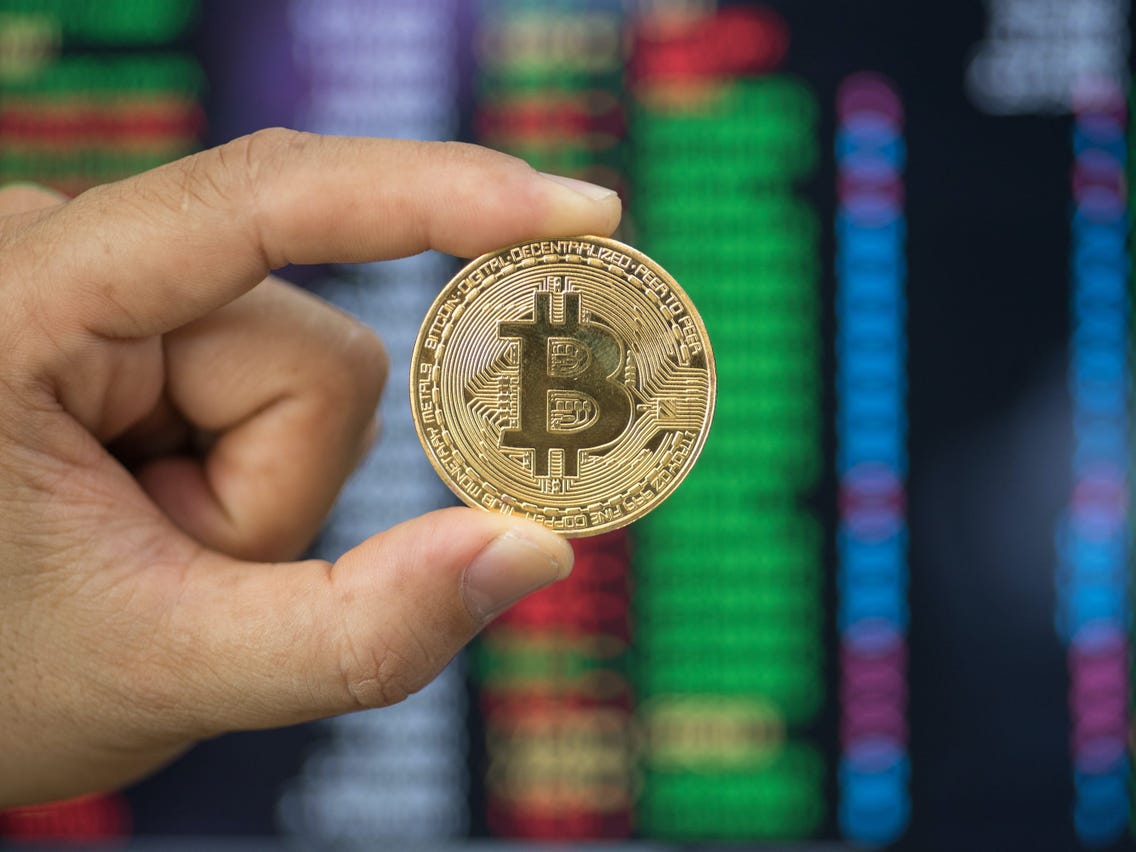Bitcoin is a digital currency, often called a cryptocurrency, that has been around since 2009 and was the first decentralized digital currency, which means it isn’t regulated by a central bank or government. Bitcoin’s value is determined by its usefulness and demand, which means the more people who use Bitcoin, the higher its value becomes.
Bitcoin is different from regular money in some important ways: there are no physical Bitcoins, you can’t touch Bitcoin transactions like you can other forms of transactions, and you don’t need to give your name when you make Bitcoin transactions. In this guide, we’ll cover the basics of Bitcoins, how it works and why it’s becoming increasingly popular as a means of investment.
What Is Cryptocurrency?
Cryptocurrency is a type of digital currency that doesn’t need a central bank and is called “crypto” because it uses cryptography to keep transactions secure. The first cryptocurrency was Bitcoin, which was introduced in 2009 by Satoshi Nakamoto. The creator’s goal was to create a currency that could be used as a means of exchange online and couldn’t be counterfeited due to its mathematical design; this is due to using blockchain to create decentralized networks.
What Is Bitcoin?
So, what exactly is Bitcoin? As mentioned, Bitcoin was the first cryptocurrency, and this currency is different from regular money because there is no physical commodity. You can’t hold Bitcoin like you can other forms of cash, and due to the nature of how Bitcoin works, you don’t need to give your name when you make transactions.
How Does Bitcoin Work?
As we covered already, Bitcoin is a digital currency, and this means it isn’t tangible like regular money, which you can touch and hold in your hand. Instead, Bitcoins exist in the digital world on your computer or in the cloud and are stored in a Bitcoin wallet, which is like an online bank account where your Bitcoins are stored when they’re not being used.
One of the key aspects of Bitcoin is that there are no physical Bitcoins; instead, there are simply records of transactions made on a public ledger called the blockchain. The blockchain records every Bitcoin transaction that has ever been made and keeps track of them in chronological order. This allows for transparency and security: you can make transactions without having to divulge your identity, and everything is stored in plain sight.
When someone wants to buy or sell Bitcoins, they will make a record of their Bitcoin address, and what they want to do with any Bitcoins they have already. During this process, it creates a new entry on the public ledger that everyone can see but cannot edit or delete; this way, if anyone tries to spend the same amount of money at once, there will be two records for one transaction on the blockchain. This prevents fraud from happening when making Bitcoin transactions because everyone can see what’s going on since it’s all out in the open.
How Many Bitcoins Exist?
There are 21 million Bitcoins that will ever be mined. When mining Bitcoin, you cannot mine a single coin and instead will mine blocks, and every four years, the amount of Bitcoins you can mine per block is halved, which is known as “The Halvening.” This means that the reward for Bitcoin mining goes down over time, and with Bitcoin mining, when there are fewer Bitcoins left to mine, it becomes harder to mine them because the computational power needed increases exponentially.
How Can You Get Bitcoins?
There are a few ways you can get Bitcoins. You can buy them from an exchange, accept them as payment for goods or services, or you can mine them yourself. To purchase Bitcoins, you’ll need to set up a Bitcoin wallet and then buy Bitcoins from a Bitcoin exchange, such as Paxful, that will sell them to you in exchange for your local currency. If you’re interested in learning more about how you can buy Bitcoin, check out this handy guide on how to turn your cash into BTC. However, if you want to mine for Bitcoins, you’ll need specialized computer hardware and know-how.
Why Choose Bitcoin?
There are many advantages of using Bitcoin as a currency, and one of the most obvious benefits is that it’s not regulated by any central bank or government. Additionally, businesses and individuals alike can also process their payments without ever giving out their personal information such as name and address. On top of that, because Bitcoins can be used in any country, there’s no need for currency exchange rates and international wire transfers.
Bitcoin is also more secure than regular money and is much more difficult to steal. Transactions can be processed faster than with other forms of payment because the process doesn’t require traditional financial institutions like banks and credit card companies to verify the transaction before it goes through.
Another advantage of Bitcoin is that it presents an opportunity for investments that are largely out of reach for most people due to high-risk factors. Investing in stocks typically requires a lot of education into how the stock market works and considerable financial resources to be successful, which is something many people have difficulty affording. However, Bitcoin investments only require a small amount of money to start investing, which makes it a viable option for a wide range of investors with the goal of expanding their financial stability.
What Impacts The Value Of Bitcoin
The value of Bitcoin is directly related to its usefulness and demand. One way to increase the demand for Bitcoins is by increasing the number of places where people can spend Bitcoins, which, as a result, will increase the amount of people who use Bitcoin. Other factors that can affect Bitcoin’s value include media attention, political concerns, and technological developments. For example, if someone was illegally trading Bitcoins, then the bad publicity surrounding this incident may cause Bitcoin’s value to drop. This could also lead to people moving their funds out of Bitcoins and reinvesting them into other forms of currency.

“Beer practitioner. Pop culture maven. Problem solver. Proud social media geek. Total coffee enthusiast. Hipster-friendly tv fan. Creator.”




